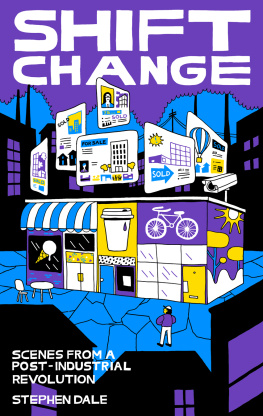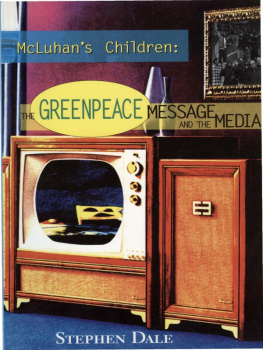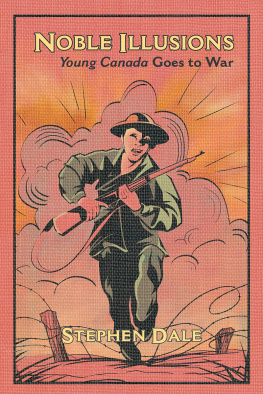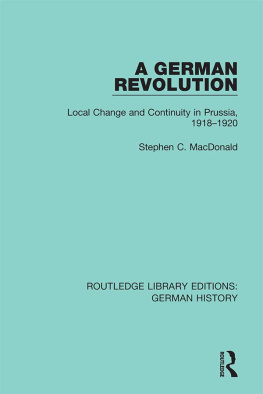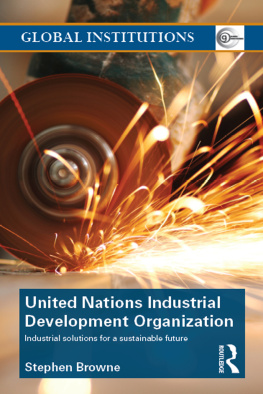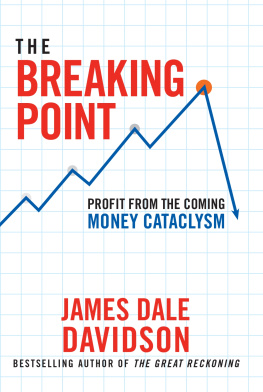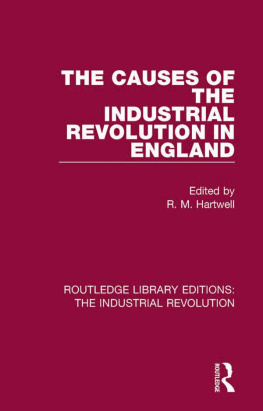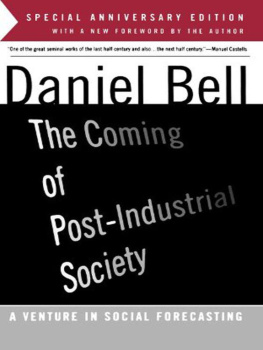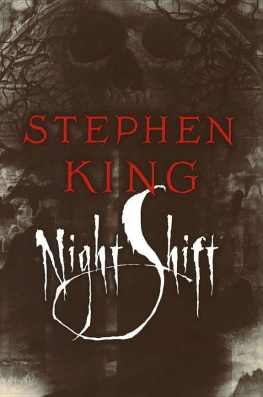A must-read for anyone concerned about gentrification and displacement in our cities. This is an excellent analysis of both the challenges and opportunities we are facing in trying to manage rapid economic change in my hometown of Hamilton, Ontario.
Terry Cooke , CEO, Hamilton Community Foundation, and Former Hamilton-Wentworth Regional Chair
Hamilton is an aging industrial centre that has made the transition to a post-industrial setting. Tough challenges remain, including poverty, gentrification, lack of affordable housing, and inequality. Stephen Dale ably uses his interviewing skills to provide a unique perspective in Shift Change that is honest, enlightening, and not without hope for the future of his hometown.
Paul Weinberg , independent journalist, editor, and contributor to Reclaiming Hamilton: Essays from the New Ambitious City
Shift Change offers a nuanced perspective on an all-too-familiar story, that of gentrification inevitably engulfing a working-class town. Dale insists that Hamilton can resist this narrative and emerge from decline as a city with a place, and a future, for everyone.
Leslie Kern , associate professor of Womens and Gender Studies and Geography and Environment, Mount Allison University, author of Feminist City: A Field Guide
Outsiders still give Hamilton a bad rap. But hometown boy takes stock of the citys turnaround while its still in progress. Informed, engaging, passionatewhy cant we have more books like this about Canadas cities?
Richard Harris , professor emeritus, School of Earth, Environment and Society, McMaster University
Shift Change has the reach and the importance no doubt hoped for by its author. Combining wide-ranging comparative research with many rich interviews of key participants, the author outlines how Hamilton, Ontario, like many other de-industrialized cities and regions, is in the throes of an epic battle for its place in a post-industrial world. No longer a lunch bucket steel town, the combatants are not behemoth manufacturers versus powerful trade unions, but gentrifying developers and their Toronto-come-lately customers versus a determined, but far from united, array of affordable housing and anti-poverty activists and organizations, who draw upon the citys history of community solidarities and collective struggles to argue for a post-industrial pathway that retains Hamiltons egalitarian heart and soul. As Shift Change optimistically concludes, that remains a road that is there to be taken.
Robert Storey , emeritus faculty, School of Labour Studies, McMaster University
Stephen Dales fast-moving, yet nuanced, portrait of his hometown is the intelligent book that Hamilton deserves and all of urban(ist) Canada needs. Dale diverts our attention from the big smoke of the global city and reveals the trials and temptations of life and politics in the rest of the urban nation.
Roger Keil , professor, Faculty of Environmental and Urban Change, York University
Stephen Dales absorbing book brings to life the complexity of Hamiltons history as a blue-collar steel town and its emergence as an attraction for artists, creatives, and Torontonians seeking an affordable lifestyleand compromising it for others in the process. There are important sociological lessons and cautions here for communities trying to redefine themselves post-industrialization.
Trish Hennessy , Canadian Centre for Policy Alternatives
Shift Change
Scenes from a Post-industrial Revolution
Stephen Dale
Between the Lines
Toronto
Shift Change
2021 Stephen Dale
First published in 2021 by
Between the Lines
401 Richmond Street West, Studio 281
Toronto, Ontario, M5V 3A8, Canada
1-800-718-7201 www.btlbooks.com
All rights reserved. No part of this publication may be photocopied, reproduced, stored in a retrieval system, or transmitted in any form or by any means, electronic, mechanical, recording, or otherwise, without the written permission of Between the Lines, or (for copying in Canada only) Access Copyright, 69 Yonge Street, Suite 1100, Toronto, ON M5E 1K3.
Every reasonable effort has been made to identify copyright holders. Between the Lines would be pleased to have any errors or omissions brought to its attention.
Library and Archives Canada Cataloguing in Publication
Title: Shift change: scenes from a post-industrial revolution / Stephen Dale.
Names: Dale, Stephen, 1958- author.
Description: Includes bibliographical references and index.
Identifiers: Canadiana (print) 20210241985 | Canadiana (ebook) 20210242086 | ISBN 9781771135535 (softcover) | ISBN 9781771135542 (EPUB) | ISBN 9781771135559 (PDF)
Subjects: LCSH: UrbanizationOntarioHamilton. | LCSH: Sustainable developmentOntarioHamilton. | LCSH: Hamilton (Ont.) Economic conditions. | LCSH: Hamilton (Ont.)Social conditions.
Classification: LCC HT384.C32 H36 2021 | DDC 307.7609713/52dc23
Cover design by Michael DeForge
Text design by DEEVE
Printed in Canada
We acknowledge for their financial support of our publishing activities: the Government of Canada; the Canada Council for the Arts; and the Government of Ontario through the Ontario Arts Council, the Ontario Book Publishers Tax Credit program, and Ontario Creates.
For Geoff and Elaine
Contents
Acknowledgements
Im grateful to the multitude of people who contributed their time, ideas, and good will to this project. This book wouldnt have made it into print without you.
Shift Change relies heavily on first-person reflections and reminiscences. Id therefore like to thank, first of all, the people who allowed me to interview them, whose passion animates these pages, and whose generosity and openness made a lasting impression on me.
There were many others who helped shape this book, particularly during the preliminary research, by sharing their knowledge of the social, political, and cultural landscape of current-day Hamilton. Noelle Allen, Ryan McGreal, Shawn Selway, Paul Weinberg, Rob Kendrick, and Jeff Martin were all involved in some formative early conversations and, in some cases, introduced me to key interviewees. Sarah Hipworth also contributed to those discussions and introductions, and later provided crucial feedback on a draft of the manuscript. Matthew Behrens and Jazz Cook carefully read the penultimate version before it went to print.
Untold hours of interviews became manageable thanks to the diligent transcription of Aha Blume.
Some of the research in this book first saw the light of day through a series of podcasts, produced with invaluable assistance from Lil Blume, Adrian Shuman, Jamie Tennant, and Victoria Fenner. Two of those podcasts, posted on the Raise the Hammer website and elsewhere, received support from the Ontario Arts Councils Media Arts program. Another audio documentary on Hamiltons waterfront was commissioned by David Kattenburg for his excellent multimedia website, the Green Planet Monitor.
There arent enough superlatives in the dictionary to describe the wonderful people at Between the Lines. In particular, Id like to thank Jamie Swift for his enthusiasm and encouragement, as well as his insightful review of the manuscript; Amanda Crocker for her calm tenacity and wealth of useful suggestions; and eagle-eyed editor Tilman Lewis, whose skilful and sensitive work enormously improved the pages that follow.


